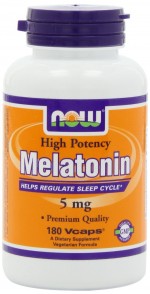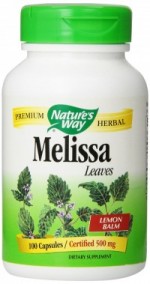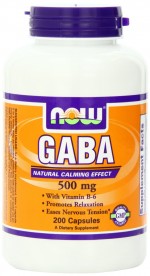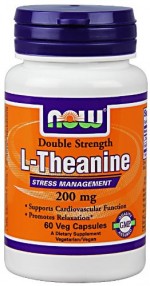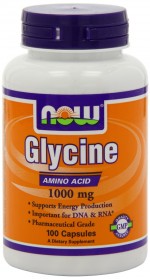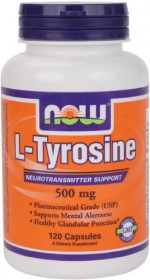You dread your morning alarm like it’s an air raid siren…
You creak and groan as you clamber out of bed and sleepwalk to the coffee machine…
A trip to the gym or dentist? You can’t decide which sounds worse…
You meander through the day, your mind swimming in a London fog…
You don’t “wind down” at night–the wheels just fall off and you collapse…
You’re always fatigued. And it makes life awful.
In case you’re not “in the know,” fatigue is a lot more than physical tiredness and sleepiness. Symptoms also include depression, irritability, giddiness, loss of appetite, digestive problems, and impaired immunity.
Chronic (6+ month), physical-and-mental-exhaustion-level fatigue can be a sign of serious illness and warrants a visit to the doctor, but the majority of people battling fatigue can win the fight with the simple lifestyle changes discussed in this article.
Table of Contents
How to Overcome Fatigue
A quick look at our modern lifestyle explains a lot about the large number of “walking dead” among us:
- we sleep too little,
- we eat too much junk food,
- we exercise too infrequently,
- and we don’t effectively cope with stress.
That’s about as effective of a recipe for fatigue as you can whip up. And you can undo its effects by addressing each point.


Get Enough Sleep
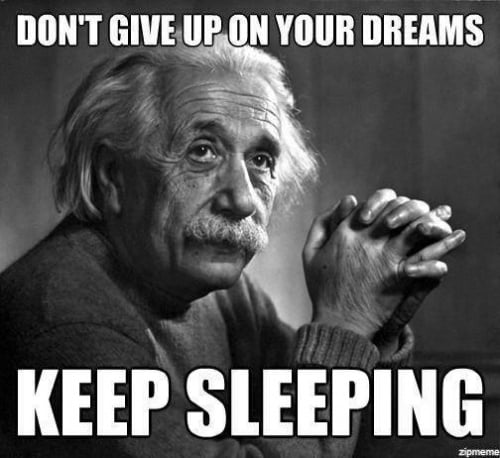
I believe that’s a direct quote of the good doctor…
We’ve all experienced the fatigue that comes with acute sleep deprivation, but many of us aren’t getting enough sleep and don’t realize it.
Sleep needs vary from individual to individual, but according to the National Sleep Foundation, adults need 7–9 hours of sleep per night.
Genetics and age affect how much sleep your body ultimately needs, so here’s a simple way to see what’s best for you: pick a two-week period such as a vacation and go to bed at the same time each night without an alarm set.
Chances are you’ll sleep longer than usual at first if you have “sleep debt” to cancel out, but toward the end of the second week, your body will establish a pattern of sleeping about the same amount every night. That’s how much sleep it needs.
Now, many people know they should sleep more but simply can’t. As of 2006, it’s estimated that 50–70 million Americans suffer from a sleep disorder and the CDC said in 2014 that insufficient sleep is a “public health epidemic.”
Millions of the sleep-deprived turn to hypnotic drugs like Ambien, Rozerem, and Sepracor, but these come with a host of rather scary potential side effects and complications, including…
- depression,
- increased risk of cancer and overall mortality,
- increased risk of infections,
- delirium, nightmares, and hallucinations,
- and more.
Relying on these types of drugs to sleep clearly isn’t ideal. Fortunately, there are quite a drug-free ways to get a good night’s rest.
Avoid caffeine, alcohol, nicotine, and other chemicals that interfere with sleep.
We all know that caffeine and nicotine are stimulants to be avoided several hours before bed, but many don’t know that alcohol can disrupt their shuteye as well.
Alcohol can help you fall asleep but it then acts as a stimulant and interferes with natural sleep cycles.
Make getting enough sleep a priority.
Just as you give priority to proper diet and exercise, getting to bed on time must be non-negotiable.
Keep your bedroom dark, quiet, and cool, which cues the brain to put the body to sleep.
Don’t expose yourself to bright lights while you’re getting ready for bed because this can suppress your body’s production of melatonin, a hormone that induces sleep.
Don’t watch TV or use a computer, tablet, or smartphone for at least an hour before bed.
These devices emit a light known as “blue light,” which is a powerful melatonin suppressant.
If you must be on the computer late at night, use a program like f.lux to neutralize the sleep-killing blue light. And if you’re like me and do all your reading electronically, switch to good ol’ paper for your in-bed reading and you’ll sleep better.
Create a relaxing pre-sleep routine, such as taking a bath, reading a book, listening to calming music, and stretching or doing breathing exercises.
Avoid stressful or stimulating conversations or activity.
Don’t just lie in bed staring at the clock.
This will stress you, which increases cortisol levels and keeps you awake.
Instead, ignore the clock, and if you’re unable to fall asleep in a reasonable amount of time, get up and occupy yourself with a quiet, soothing activity like reading or listening to music until your eyes become droopy. Then go back to bed.
Keep your body’s internal clock regulated by going to bed and waking up at the same time every day.
Waking up at the same time despite when you went to bed is the best way to set your body’s clock and maintain it.
Don’t exercise too late.
Finish your workout at least 3 hours before bedtime to allow cortisol levels and body temperature to drop and you’ll likely find it easier to fall asleep.
Supplements to Help You Sleep Better
There are several natural, safe, and non-addictive supplements you can take to sleep better.
Melatonin
Melatonin is a hormone the brain produces to regulate sleep. It’s also found in various foods and thus is available as a supplement.
Research has shown that supplementation with melatonin can help you fall asleep faster, and sleep better, and effective dosages range from 500 mcg to 5 mg.
It’s generally recommended that you begin with taking 500 mcg 30 minutes before bed and work up to 3 to 5 mg if needed.
Lemon Balm
Lemon balm is an herb that can reduce anxiety and stress and induce calmness, which can help you fall asleep faster and sleep better.
In terms of dosages, 300 mg is considered the lowest effective dosage and studies have shown dose-dependent benefits up to 1,200 mg.
GABA
GABA, also known as gamma-aminobutyric acid, is an amino acid that helps stimulate relaxation and sleep.
Research has shown that low brain levels of GABA causes increased wakings after falling asleep, and that supplementation with GABA can induce relaxation, and help you fall asleep faster, stay asleep longer, and improve the quality of your sleep.
The common clinical supplementation protocol used is 500 to 600 mg before going to bed.
Theanine
Theanine is an amino acid that can improve the quality of your sleep and help you feel more rested in the morning.
Tea is a great source of theanine but as it also has caffeine, a cup or two before bed may not be a good idea.
Fortunately, you can supplement with theanine, and the optimal dosage is between 150 and 200 mg taken 30 to 60 minutes before bed.
Glycine
Glycine is also an amino acid that can help you fall asleep and even improve cognitive performance the next day.
Collagen is a good source of glycine but chances are chewing on animal sinew before bed doesn’t appeal to you.
Supplement instead with 3 grams before bed to reap its benefits.
Drink Enough Water
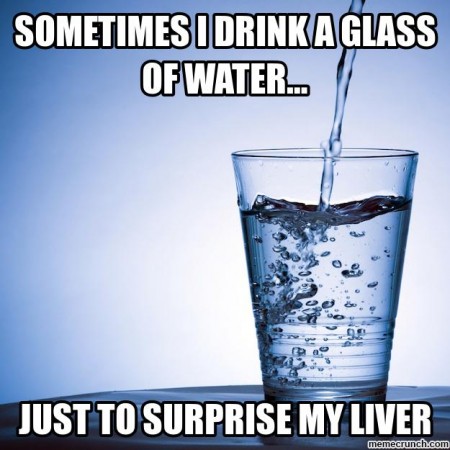
Liver confusion is an important part of staying healthy.
Research shows that even slight dehydration can increase feelings of fatigue and anxiety and impair mood and cognitive performance.
The Institute of Medicine recommends that women get about 3/4 of a gallon of water per day and men about a gallon. You can count on getting about 20% of that from your food but need to drink the rest.
Don’t stock up on bottled water, though, as it’s exorbitantly expensive and likely full of harmful chemicals.
One study examined 18 different bottled waters from 13 different companies and found over 24,000 chemicals present including endocrine disruptors. Martin Wagner, a scientist at Goethe University Frankfurt’s Department of Aquatic Ecotoxicology, had this to say:
“Bottled water had a higher contamination of chemicals than glass bottles. There are many compounds in bottled water that we don’t want to have there. Part is leaching from the plastic bottles, lids or contamination of the well.”
This is why I recommend you invest in an effective water filtration device such as the ZeroWater pitcher or iSpring reverse osmosis system.
Keep in mind that what you want to achieve with water filtration is very low levels of dissolved solids in the water as measured in “parts per million.” The closer to 0, the better. (Tap water generally tests at anywhere from 200 – 700 PPM of dissolved solids.)
You can measure the levels of dissolved solids in your water using an electronic water tester like this one from ZeroWater. This is useful for keeping an eye on your water quality, so you know when filters need to be changed.
Eat More Nutritious Foods
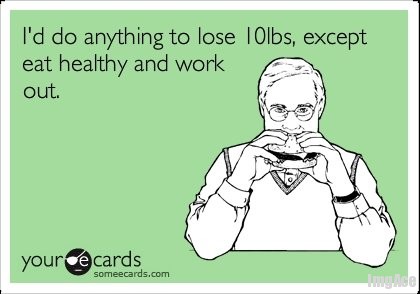
YOLO
Overweight people are often stigmatized as being inherently undisciplined and lazy, but research shows that the foods they eat may be at least partially to blame.
Scientists have found that rats fed diets of highly processed foods rich in sugar and saturated fat not only get fatter than those eating unprocessed, more nutritious foods, they also get lazier and less willing to perform simple tasks for food.
If you’re thinking these effects may have been caused by the weight gain (the worse you feel physically, the lazier you tend to be), it’s not that simple. This study conducted by scientists at the University of New South Wales showed that the cognitive decline associated with a “junk food diet” occurs within one week, before any significant weight gain.
The underlying causes aren’t clear yet, but researchers believe brain inflammation caused by the junk food diet is related. There’s also the interesting fact that the gut communicates to the central nervous system and can alter mood, which helps explain why research shows that many people suffering from chronic fatigue also complain of gastrointestinal problems, and why probiotics can alleviate emotional symptoms of chronic fatigue.
The bottom line is the healthier your gut is, the better your overall mood and mental state is going to be. And the best way to maintain optimal gut health is a diet rich in unprocessed, nutrient-dense foods.
It’s also worth noting what happened when scientists reversed the rats’ diets for 9 days: nothing changed.
That is, the rats that switched from the junk food diet to a nutritious diet for 9 days were just as lazy and unmotivated and the rats switched from the nutritious to the junk food exhibited no signs of fatigue or decreased motivation in their tasks.
The takeaway here is “quick fixes” don’t work when it comes to healthy eating.
You can’t “undo” months of dietary abuse with a week of “clean eating.” On the flip side, however, you can get away with occasional “dietary lapses” if you have healthy eating habits in place.
This is the secret to successful “flexible dieting.” Get the majority of your daily calories from nutritious foods and “sneak in” some “junk” here and there.
Exercise Regularly…But Not Too Much

Impossible is nothing.
Exercise is the last thing you want to do when you’re in the throes of fatigue, but research shows it can help more than a nap.
A meta-analysis conducted by researchers at the University of Georgia reviewed 70 studies on exercise and fatigue involving more than 6,800 people and found that over 90% of the studies demonstrated that sedentary people can reduce fatigue with regular exercise. In fact, exercise works better than stimulants and medications!
If you’re sedentary and fatigued, start exercising and you’ll feel better. You can bank on it.
Take it too far, though, and you can feel even worse than before you started.
You see, the more you exercise, the more you stress your body. If you exercise too frequently and intensely, you can wind up in a state of chronic stress wherein your body can’t adequately recover from your workouts.
If you’d like to learn more about how much is too much exercise, check out my articles on how much cardio you should do and proper training frequency.
Lighten Up

Why so serious?
When talking fatigue, the considerable overlap between psychological and physical factors can make it hard to determine cause and effect. Sometimes our sour mood makes us physically tired and sometimes our physical exhaustion sours our mood.
Well, the physical causes are often the primary culprit and but let’s not neglect the psychological realm of fatigue.
Let’s keep it short and simple too: lifting your spirits is an effective way to fight fatigue.
Case in point: if there’s ever a reason to be physically exhausted, having a new baby is it, and research shows that regular laughter reduces postpartum stress and fatigue.
If “laughter therapy” can help the frazzled and frayed nerves of new moms, it can help us too.
In fact, there’s a growing body of evidence that regular laughter can noticeably improve our overall physical and mental health. It can reduce stress, diminish pain, improve quality of life, and even increase immunity. (Music has also been shown to confer similar benefits.)
So laugh daily and you’ll live a better life. Want to start now? I’ve got your back:
Supplements That Help Beat Fatigue
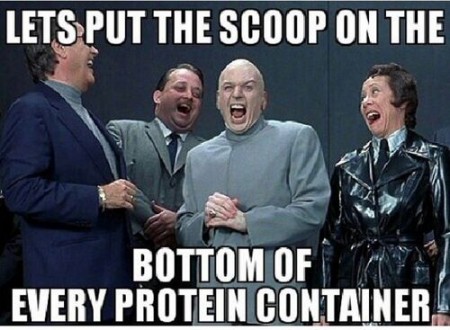
Well that explains it…
We’ve taken in-depth look at the major causes of fatigue and how to fix them through better lifestyle choices, so now let’s see what we can do in terms of supplementation to support our efforts.
And in the spirit of full disclosure, I want you to know that some of the supplements I recommend in this article are not just what I personally use but they are from my supplement line, LEGION.
As you probably know, the supplement industry is notorious for its lies and shenanigans. The truth is the majority of the supplements you see in the magazines and on the shelves aren’t going to help you reach your goals faster.
That’s why I decided to create the products I myself have always wanted: science-based formulations, clinically effective dosages of all ingredients, no fillers or unnecessary junk, and natural sweetening and flavoring.
You can learn more about LEGION and my goal to change the supplement industry for the better here.
And if you like what you see and decide to support my work…you’re awesome. 🙂
It’s because of people like you that I get to spend my time writing articles like this that help others get into the best shape of their lives.
Alright then, let’s get to the supplements.
Rhodiola Rhosea
Rhodiola is a plant that grows in cold regions of the world including much of the Arctic, the mountains of Central Asia, North America, and Europe.
Research shows that supplementation with rhodiola improves symptoms of stress caused by lifestyle factors such as work, school, relationships, finances, etc., and thus can help fight off fatigue.
150 mg per day gets the job done, and if you’re interested in supplementing with rhodiola rosea, I highly recommend you check out my multivitamin TRIUMPH.
It contains a clinically effective dosage of the plant as well as several other powerful anti-stress compounds including…
- Ashwagandha root extract. Studies show this lowers feelings of stress and anxiety and reduces cortisol levels.
- Bacopa monnieri. Research shows this improves mood and reduces stress and depressive symptoms.
- Lavender powder extract. Studies show this reduces anxiety levels, particularly used in treatment of generalized anxiety disorder (GAD).
L-Tyrosine
L-tyrosine is an amino acid that protects you from the effects of stress by helping the body produce adrenaline and dopamine.
If that sounds backward to you–protect us from stress by helping produce “stress chemicals”?–it’s not: fatigue sets in when our bodies can no longer produce these neurotransmitters.
The best way to use tyrosine is to take 500 to 2,000 mg before a stressful event, like a long bout of endurance exercise, an important test or interview, and so forth.
L-Ornithine
Chronic stress causes a surplus of ammonia to build up in the blood, which in turn causes fatigue.
L-ornithine is an amino acid that mitigates this by supporting a metabolic process known as the Urea cycle.
2 to 6 grams taken daily is the clinically effective dosage and you can buy it as a standalone supplement but you can also get a clinically effective dosage from my pre-workout drink PULSE.
That’s not all you get with PULSE, though. It contains 5 more of the most effective performance-enhancing ingredients available:
- Caffeine. Caffeine is good for more than the energy boost. It also increases muscle endurance and strength.
- Beta-Alanine. Beta-alanine is a naturally occurring amino acid that reduces exercise-induced fatigue, improves anaerobic exercise capacity, and can accelerate muscle growth.
- Citrulline Malate. Citrulline is an amino acid that improves muscle endurance, relieves muscle soreness, and improves aerobic performance.
- Betaine. Betaine is a compound found in plants like beets that improves muscle endurance, increases strength, and increases human growth hormone and insulin-like growth factor 1 production in response to acute exercise.
- Theanine. Theanine is an amino acid found primarily in tea that reduces the effects of mental and physical stress, increases the production of nitric oxide, which improves blood flow, and improves alertness, focus, attention, memory, mental task performance, and mood.
And what you won’t find in PULSE is equally special:
- No artificial sweeteners or flavors.
- No artificial food dyes.
- No unnecessary fillers, carbohydrate powders, or junk ingredients.
The bottom line is if you want to know what a pre-workout is supposed to feel like…if you want to experience the type of energy rush and performance boost that only clinically effective dosages of scientifically validated ingredients can deliver…then you want to try PULSE.
Creatine
Creatine is a substance produced by the body and found in foods like red meat. Supplementation with it helps you…
- build muscle and improve strength,
- improve anaerobic endurance,
- reduce muscle damage and soreness from exercise,
- and reduce fatigue and promote effective usage.
Simply put, creatine is a supplement that everyone who’s physically active should be taking.
In terms of specific products, I use my own, of course, which is called RECHARGE.
RECHARGE is 100% naturally sweetened and flavored and each serving contains:
- 5 grams of creatine monohydrate
- 2100 milligrams of L-carnitine L-tartrate
- 10.8 milligrams of corosolic acid
This gives you the proven strength, size, and recovery benefits of creatine monohydrate plus the muscle repair and insulin sensitivity benefits of L-carnitine L-tartrate and corosolic acid.
The Bottom Line on Overcoming Fatigue
If you’re struggling with fatigue, you now have quite a few scientifically validated dietary, lifestyle, and supplementation tools to overcome it.
Manage stress better, stay hydrated, eat a nutritious diet, exercise regularly, get enough quality sleep, use laughter to raise your spirits, and supplement if needed, and you should enjoy a marked reduction in your fatigue symptoms.
What are your thoughts on fatigue and how to overcome it? Have anything else to share? Let me know in the comments below!
+ Scientific References
- M, F., F, M., N, U., K, E., J, T., Y, K., N, Y., T, M., T, K., Y, N., R, M., Y, F., Y, Y., & Y, S. (2006). Effect of corosolic acid on postchallenge plasma glucose levels. Diabetes Research and Clinical Practice, 73(2), 174–177. https://doi.org/10.1016/J.DIABRES.2006.01.010
- JY, H., WJ, K., JS, V., MS, F., GA, T., C, D.-L., M, C., K, H., & CM, M. (2010). l-Carnitine l-tartrate supplementation favorably affects biochemical markers of recovery from physical exertion in middle-aged men and women. Metabolism: Clinical and Experimental, 59(8), 1190–1199. https://doi.org/10.1016/J.METABOL.2009.11.012
- JD, B. (2003). Effect of creatine supplementation on body composition and performance: a meta-analysis. International Journal of Sport Nutrition and Exercise Metabolism, 13(2), 198–226. https://doi.org/10.1123/IJSNEM.13.2.198
- JM, E., JR, S., GA, M., NJ, S., KA, I., AN, G., & R, G. (2005). Effect of creatine phosphate supplementation on anaerobic working capacity and body weight after two and six days of loading in men and women. Journal of Strength and Conditioning Research, 19(4), 756–763. https://doi.org/10.1519/R-16924.1
- RA, B., CH, P., KF, V., AJ, S., LR, S., & R, C. (2010). Effect of short-term creatine supplementation on markers of skeletal muscle damage after strenuous contractile activity. European Journal of Applied Physiology, 108(5), 945–955. https://doi.org/10.1007/S00421-009-1305-1
- ES, R., MJ, S., SJ, F., & MP, M. (2011). Low-dose creatine supplementation enhances fatigue resistance in the absence of weight gain. Nutrition (Burbank, Los Angeles County, Calif.), 27(4), 451–455. https://doi.org/10.1016/J.NUT.2010.04.001
- CF, H., DO, K., AL, M., KA, W., & AB, S. (2008). The effects of L-theanine, caffeine and their combination on cognition and mood. Biological Psychology, 77(2), 113–122. https://doi.org/10.1016/J.BIOPSYCHO.2007.09.008
- Anna C Nobre, Anling Rao, & Gail N Owen. (n.d.). L-theanine, a natural constituent in tea, and its effect on mental state - PubMed. Retrieved August 5, 2021, from https://pubmed.ncbi.nlm.nih.gov/18296328/
- JJ, F., KP, M., PJ, L., MJ, R., EA, de B., & SP, K. (2012). Assessing the effects of caffeine and theanine on the maintenance of vigilance during a sustained attention task. Neuropharmacology, 62(7), 2320–2327. https://doi.org/10.1016/J.NEUROPHARM.2012.01.020
- J, B. (2008). Psychological effects of dietary components of tea: caffeine and L-theanine. Nutrition Reviews, 66(2), 82–90. https://doi.org/10.1111/J.1753-4887.2007.00011.X
- JH, S., PM, D., S, M., MK, J., VP, S., G, B., & S, C. (2013). L-theanine promotes nitric oxide production in endothelial cells through eNOS phosphorylation. The Journal of Nutritional Biochemistry, 24(3), 595–605. https://doi.org/10.1016/J.JNUTBIO.2012.02.016
- K, K., M, O., LR, J., & H, O. (2007). L-Theanine reduces psychological and physiological stress responses. Biological Psychology, 74(1), 39–45. https://doi.org/10.1016/J.BIOPSYCHO.2006.06.006
- JM, A., EC, L., BL, B., C, S., JM, A., SA, C., WJ, K., JS, V., & CM, M. (2013). Betaine supplementation enhances anabolic endocrine and Akt signaling in response to acute bouts of exercise. European Journal of Applied Physiology, 113(3), 793–802. https://doi.org/10.1007/S00421-012-2492-8
- EC, L., CM, M., WJ, K., LM, Y., DL, H., BL, B., LE, A., JS, V., BP, M., & SA, C. (2010). Ergogenic effects of betaine supplementation on strength and power performance. Journal of the International Society of Sports Nutrition, 7. https://doi.org/10.1186/1550-2783-7-27
- JF, T., TM, F., CG, M., BK, S., SA, C., & RJ, B. (2011). The effects of chronic betaine supplementation on exercise performance, skeletal muscle oxygen saturation and associated biochemical parameters in resistance trained men. Journal of Strength and Conditioning Research, 25(12), 3461–3471. https://doi.org/10.1519/JSC.0B013E318217D48D
- D, B., JP, M., B, G., S, C.-G., ME, L. G., & PJ, C. (2002). Citrulline/malate promotes aerobic energy production in human exercising muscle. British Journal of Sports Medicine, 36(4), 282–289. https://doi.org/10.1136/BJSM.36.4.282
- J, P.-G., & PM, J. (2010). Citrulline malate enhances athletic anaerobic performance and relieves muscle soreness. Journal of Strength and Conditioning Research, 24(5), 1215–1222. https://doi.org/10.1519/JSC.0B013E3181CB28E0
- BD, K., & TL, R. (2011). Effects of β-alanine supplementation on performance and body composition in collegiate wrestlers and football players. Journal of Strength and Conditioning Research, 25(7), 1804–1815. https://doi.org/10.1519/JSC.0B013E3181E741CF
- AE, S., AA, W., JL, G., KL, K., JR, M., CM, L., DH, F., TW, B., JT, C., & JR, S. (2009). Effects of beta-alanine supplementation and high-intensity interval training on endurance performance and body composition in men; a double-blind trial. Journal of the International Society of Sports Nutrition, 6. https://doi.org/10.1186/1550-2783-6-5
- W, D., MS, O., RC, H., A, P., H, R., K, K., JA, W., & E, A. (2007). beta-Alanine supplementation augments muscle carnosine content and attenuates fatigue during repeated isokinetic contraction bouts in trained sprinters. Journal of Applied Physiology (Bethesda, Md. : 1985), 103(5), 1736–1743. https://doi.org/10.1152/JAPPLPHYSIOL.00397.2007
- TA, A., RL, R., & K, F. (2008). Effect of caffeine ingestion on one-repetition maximum muscular strength. European Journal of Applied Physiology, 102(2), 127–132. https://doi.org/10.1007/S00421-007-0557-X
- TW, B., TJ, H., RJ, S., GO, J., DJ, H., JW, C., & MH, M. (2006). The acute effects of a caffeine-containing supplement on strength, muscular endurance, and anaerobic capabilities. Journal of Strength and Conditioning Research, 20(3), 506–510. https://doi.org/10.1519/18285.1
- T, S., T, S., Y, K., & O, K. (2008). L-ornithine supplementation attenuates physical fatigue in healthy volunteers by modulating lipid and amino acid metabolism. Nutrition Research (New York, N.Y.), 28(11), 738–743. https://doi.org/10.1016/J.NUTRES.2008.08.008
- LE, B., & HR, L. (1989). Treatment with tyrosine, a neurotransmitter precursor, reduces environmental stress in humans. Brain Research Bulletin, 22(4), 759–762. https://doi.org/10.1016/0361-9230(89)90096-8
- JB, D., CJ, W., HF, V., PA, C., & JJ, L. (1999). Tyrosine improves cognitive performance and reduces blood pressure in cadets after one week of a combat training course. Brain Research Bulletin, 48(2), 203–209. https://doi.org/10.1016/S0361-9230(98)00163-4
- H, W., & S, S. (2010). A multi-center, double-blind, randomised study of the Lavender oil preparation Silexan in comparison to Lorazepam for generalized anxiety disorder. Phytomedicine : International Journal of Phytotherapy and Phytopharmacology, 17(2), 94–99. https://doi.org/10.1016/J.PHYMED.2009.10.006
- BF, B., SL, B., S, C., & RW, L. (2009). Effects of orally administered lavender essential oil on responses to anxiety-provoking film clips. Human Psychopharmacology, 24(4), 319–330. https://doi.org/10.1002/HUP.1016
- C, C., WL, G., M, L., D, K., K, B., & B, O. (2008). Effects of a standardized Bacopa monnieri extract on cognitive performance, anxiety, and depression in the elderly: a randomized, double-blind, placebo-controlled trial. Journal of Alternative and Complementary Medicine (New York, N.Y.), 14(6), 707–713. https://doi.org/10.1089/ACM.2008.0018
- S, B., LA, D., C, S., M, W., A, Z., & A, S. (2014). An acute, double-blind, placebo-controlled cross-over study of 320 mg and 640 mg doses of Bacopa monnieri (CDRI 08) on multitasking stress reactivity and mood. Phytotherapy Research : PTR, 28(4), 551–559. https://doi.org/10.1002/PTR.5029
- B, K., SF, A., S, B., A, K., KA, S., NK, S., M, A., & GN, Q. (2006). Augmentation and proliferation of T lymphocytes and Th-1 cytokines by Withania somnifera in stressed mice. International Immunopharmacology, 6(9), 1394–1403. https://doi.org/10.1016/J.INTIMP.2006.04.001
- K, C., O, S., D, P., EJ, M., B, B., Q, Z., & D, S. (2009). Naturopathic care for anxiety: a randomized controlled trial ISRCTN78958974. PloS One, 4(8). https://doi.org/10.1371/JOURNAL.PONE.0006628
- D, E., A, H., & A, Z. (2012). Therapeutic effects and safety of Rhodiola rosea extract WS® 1375 in subjects with life-stress symptoms--results of an open-label study. Phytotherapy Research : PTR, 26(8), 1220–1225. https://doi.org/10.1002/PTR.3712
- HF, T., YR, C., MH, C., YM, L., MJ, C., CC, C., & KR, C. (2014). Effectiveness of music intervention in ameliorating cancer patients’ anxiety, depression, pain, and fatigue: a meta-analysis. Cancer Nursing, 37(6), E35–E50. https://doi.org/10.1097/NCC.0000000000000116
- Bennett, M. P., & Lengacher, C. A. (2006). Humor and Laughter may Influence Health. I. History and Background. Evidence-Based Complementary and Alternative Medicine, 3(1), 61. https://doi.org/10.1093/ECAM/NEK015
- HS, S., KH, R., & YA, S. (2011). [Effects of laughter therapy on postpartum fatigue and stress responses of postpartum women]. Journal of Korean Academy of Nursing, 41(3), 294–301. https://doi.org/10.4040/JKAN.2011.41.3.294
- MB, D.-P., T, van V., & FG, Z. (2011). Biomarkers in burnout: a systematic review. Journal of Psychosomatic Research, 70(6), 505–524. https://doi.org/10.1016/J.JPSYCHORES.2010.10.012
- L, D., A, D. P., M, C., A, C., M, P., I, N., MD, C., & G, F. (2006). Changes in erythropoiesis, iron metabolism and oxidative stress after half-marathon. Internal and Emergency Medicine, 1(1), 30–34. https://doi.org/10.1007/BF02934717
- TW, P., PJ, O., & RK, D. (2006). Effects of chronic exercise on feelings of energy and fatigue: a quantitative synthesis. Psychological Bulletin, 132(6), 866–876. https://doi.org/10.1037/0033-2909.132.6.866
- AV, R., AC, B., TM, B., MA, K., C, I., JM, B., & AC, L. (2009). A randomized, double-blind, placebo-controlled pilot study of a probiotic in emotional symptoms of chronic fatigue syndrome. Gut Pathogens, 1(1), 6. https://doi.org/10.1186/1757-4749-1-6
- LA, A., MM, B., & D, B. (2000). Overlapping conditions among patients with chronic fatigue syndrome, fibromyalgia, and temporomandibular disorder. Archives of Internal Medicine, 160(2), 221–227. https://doi.org/10.1001/ARCHINTE.160.2.221
- CA, L., JH, H., A, de V., B, P., LR, B., JR, H., JF, P., E, van K., DM, K., AK, E., GA, R., & SL, L. (2007). Identification of an immune-responsive mesolimbocortical serotonergic system: potential role in regulation of emotional behavior. Neuroscience, 146(2), 756–772. https://doi.org/10.1016/J.NEUROSCIENCE.2007.01.067
- LE, G., M, L., & RP, G. (2007). Infection-induced viscerosensory signals from the gut enhance anxiety: implications for psychoneuroimmunology. Brain, Behavior, and Immunity, 21(6), 721–726. https://doi.org/10.1016/J.BBI.2007.02.005
- JE, B., J, M., & MJ, M. (2014). Short exposure to a diet rich in both fat and sugar or sugar alone impairs place, but not object recognition memory in rats. Brain, Behavior, and Immunity, 37, 134–141. https://doi.org/10.1016/J.BBI.2013.11.016
- AP, B., YL, L., E, T., HC, L., B, F., CD, F., D, G., & DC, P. (2014). Food quality and motivation: a refined low-fat diet induces obesity and impairs performance on a progressive ratio schedule of instrumental lever pressing in rats. Physiology & Behavior, 128, 220–225. https://doi.org/10.1016/J.PHYSBEH.2014.02.025
- Wagner, M., Schlüsener, M. P., Ternes, T. A., & Oehlmann, J. (2013). Identification of Putative Steroid Receptor Antagonists in Bottled Water: Combining Bioassays and High-Resolution Mass Spectrometry. PLOS ONE, 8(8), e72472. https://doi.org/10.1371/JOURNAL.PONE.0072472
- MS, G., LE, A., DJ, C., BP, M., EC, L., LM, Y., S, M., RM, L., L, J., L, L. B., E, C., & HR, L. (2011). Mild dehydration impairs cognitive performance and mood of men. The British Journal of Nutrition, 106(10), 1535–1543. https://doi.org/10.1017/S0007114511002005
- N, P., A, D., N, G., R, B., D, M., A, K., E, P., & I, G. (2014). Effects of changes in water intake on mood of high and low drinkers. PloS One, 9(4). https://doi.org/10.1371/JOURNAL.PONE.0094754
- MS, G., LE, A., DJ, C., BP, M., EC, L., LM, Y., S, M., RM, L., L, J., L, L. B., E, C., & HR, L. (2011). Mild dehydration impairs cognitive performance and mood of men. The British Journal of Nutrition, 106(10), 1535–1543. https://doi.org/10.1017/S0007114511002005
- LE, A., MS, G., DJ, C., EC, L., BP, M., JF, K., L, J., L, L. B., E, C., & HR, L. (2012). Mild dehydration affects mood in healthy young women. The Journal of Nutrition, 142(2), 382–388. https://doi.org/10.3945/JN.111.142000
- M, B., N, K., K, O., K, N., & N, M. (2012). The effects of glycine on subjective daytime performance in partially sleep-restricted healthy volunteers. Frontiers in Neurology, 3. https://doi.org/10.3389/FNEUR.2012.00061
- YAMADERA, W., INAGAWA, K., CHIBA, S., BANNAI, M., TAKAHASHI, M., & NAKAYAMA, K. (2007). Glycine ingestion improves subjective sleep quality in human volunteers, correlating with polysomnographic changes. Sleep and Biological Rhythms, 5(2), 126–131. https://doi.org/10.1111/J.1479-8425.2007.00262.X
- Yoto, A., Motoki, M., Murao, S., & Yokogoshi, H. (2012). Effects of L-theanine or caffeine intake on changes in blood pressure under physical and psychological stresses. Journal of Physiological Anthropology 2012 31:1, 31(1), 1–9. https://doi.org/10.1186/1880-6805-31-28
- W, S., D, B., E, C., LA, M., & DS, S. (2010). A randomized, placebo-controlled trial of an amino acid preparation on timing and quality of sleep. American Journal of Therapeutics, 17(2), 133–139. https://doi.org/10.1097/MJT.0B013E31819E9EAB
- AM, A., S, H., K, H., M, K., H, H., & H, Y. (2006). Relaxation and immunity enhancement effects of gamma-aminobutyric acid (GABA) administration in humans. BioFactors (Oxford, England), 26(3), 201–208. https://doi.org/10.1002/BIOF.5520260305
- JW, W., OM, B., JE, J., KL, B., SP, O., W, W., & PF, R. (2008). Reduced brain GABA in primary insomnia: preliminary data from 4T proton magnetic resonance spectroscopy (1H-MRS). Sleep, 31(11), 1499–1506. https://doi.org/10.1093/SLEEP/31.11.1499
- DO, K., AB, S., NT, T., EK, P., & KA, W. (2002). Modulation of mood and cognitive performance following acute administration of Melissa officinalis (lemon balm). Pharmacology, Biochemistry, and Behavior, 72(4), 953–964. https://doi.org/10.1016/S0091-3057(02)00777-3
- DO, K., W, L., & AB, S. (2004). Attenuation of laboratory-induced stress in humans after acute administration of Melissa officinalis (Lemon Balm). Psychosomatic Medicine, 66(4), 607–613. https://doi.org/10.1097/01.PSY.0000132877.72833.71
- J, C., A, I., N, F., M, R., & SG, S. (2011). Pilot trial of Melissa officinalis L. leaf extract in the treatment of volunteers suffering from mild-to-moderate anxiety disorders and sleep disturbances. Mediterranean Journal of Nutrition and Metabolism, 4(3), 211–218. https://doi.org/10.1007/S12349-010-0045-4
- N, B., B, V., R, P., N, H., L, T., L, H., G, B., S, V., & T, K. (2004). Melatonin for treatment of sleep disorders. Evidence Report/Technology Assessment (Summary), 108, 1–7. https://doi.org/10.1037/E439412005-001
- PJ, M., & SS, C. (1997). Nighttime drop in body temperature: a physiological trigger for sleep onset? Sleep, 20(7), 505–511. https://doi.org/10.1093/SLEEP/20.7.505
- Chang, A.-M., Aeschbach, D., Duffy, J. F., & Czeisler, C. A. (2015). Evening use of light-emitting eReaders negatively affects sleep, circadian timing, and next-morning alertness. Proceedings of the National Academy of Sciences, 112(4), 1232–1237. https://doi.org/10.1073/PNAS.1418490112
- Holzman, D. C. (2010). What’s in a Color? The Unique Human Health Effects of Blue Light. Environmental Health Perspectives, 118(1), A22. https://doi.org/10.1289/EHP.118-A22
- JJ, G., K, C., KA, S., SB, K., SM, R., E, V. R., JM, Z., CA, C., & SW, L. (2011). Exposure to room light before bedtime suppresses melatonin onset and shortens melatonin duration in humans. The Journal of Clinical Endocrinology and Metabolism, 96(3). https://doi.org/10.1210/JC.2010-2098
- IO, E., CM, S., AJ, W., & PB, F. (2013). Alcohol and sleep I: effects on normal sleep. Alcoholism, Clinical and Experimental Research, 37(4), 539` – 549. https://doi.org/10.1111/ACER.12006
- LC, T., BM, T., G, C., MC, C., & DS, C. (2000). Central nervous system side effects associated with zolpidem treatment. Clinical Neuropharmacology, 23(1), 54–58. https://doi.org/10.1097/00002826-200001000-00011
- Florendo L Joya, Daniel F Kripke, Richard T Loving, Arthur Dawson, & Lawrence E Kline. (n.d.). Meta-analyses of hypnotics and infections: eszopiclone, ramelteon, zaleplon, and zolpidem - PubMed. Retrieved August 5, 2021, from https://pubmed.ncbi.nlm.nih.gov/19968019/
- DF, K., RD, L., & LE, K. (2012). Hypnotics’ association with mortality or cancer: a matched cohort study. BMJ Open, 2(1). https://doi.org/10.1136/BMJOPEN-2012-000850
- Kripke, D. F. (2007). Greater incidence of depression with hypnotic use than with placebo. BMC Psychiatry 2007 7:1, 7(1), 1–5. https://doi.org/10.1186/1471-244X-7-42
- A Appels. (n.d.). Exhausted subjects, exhausted systems - PubMed. Retrieved August 5, 2021, from https://pubmed.ncbi.nlm.nih.gov/9401630/
